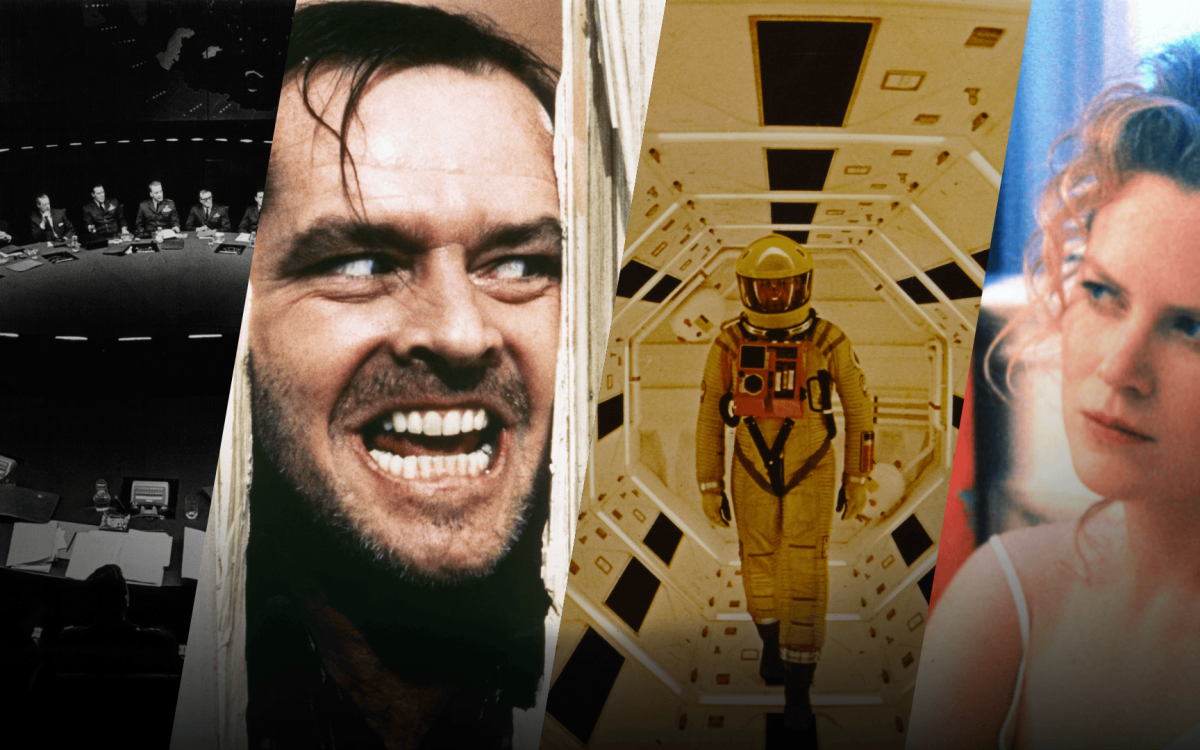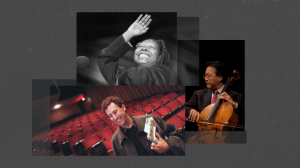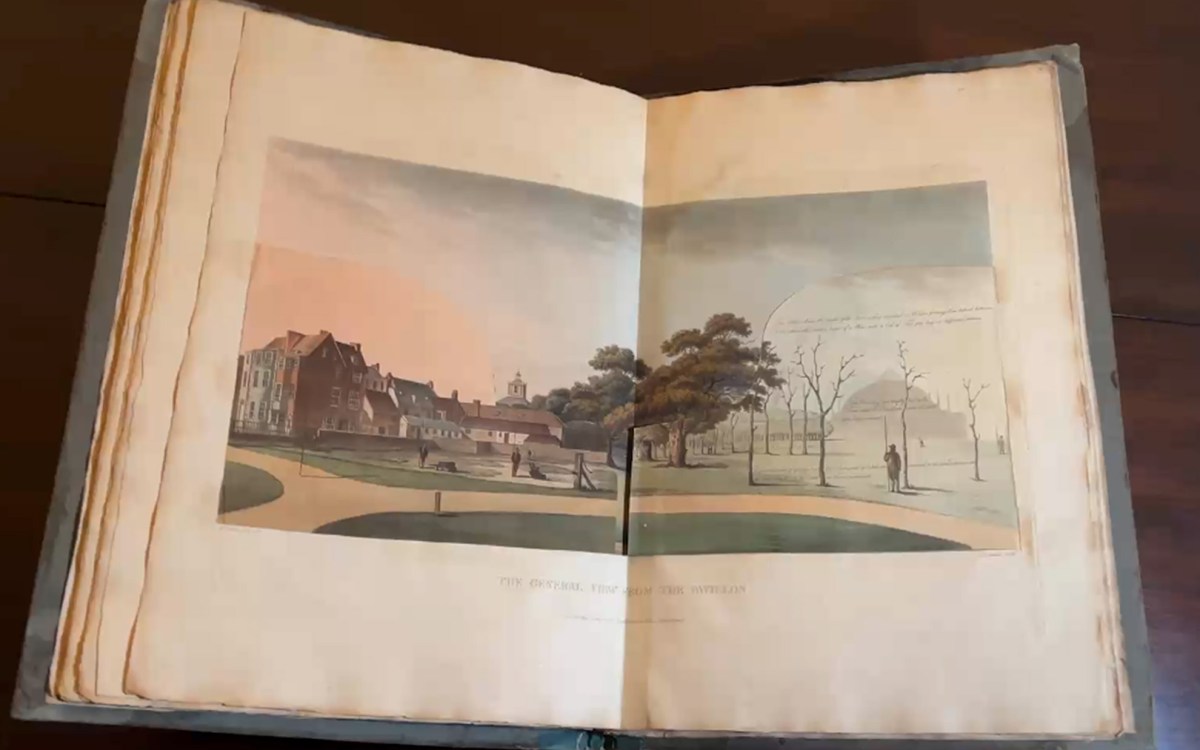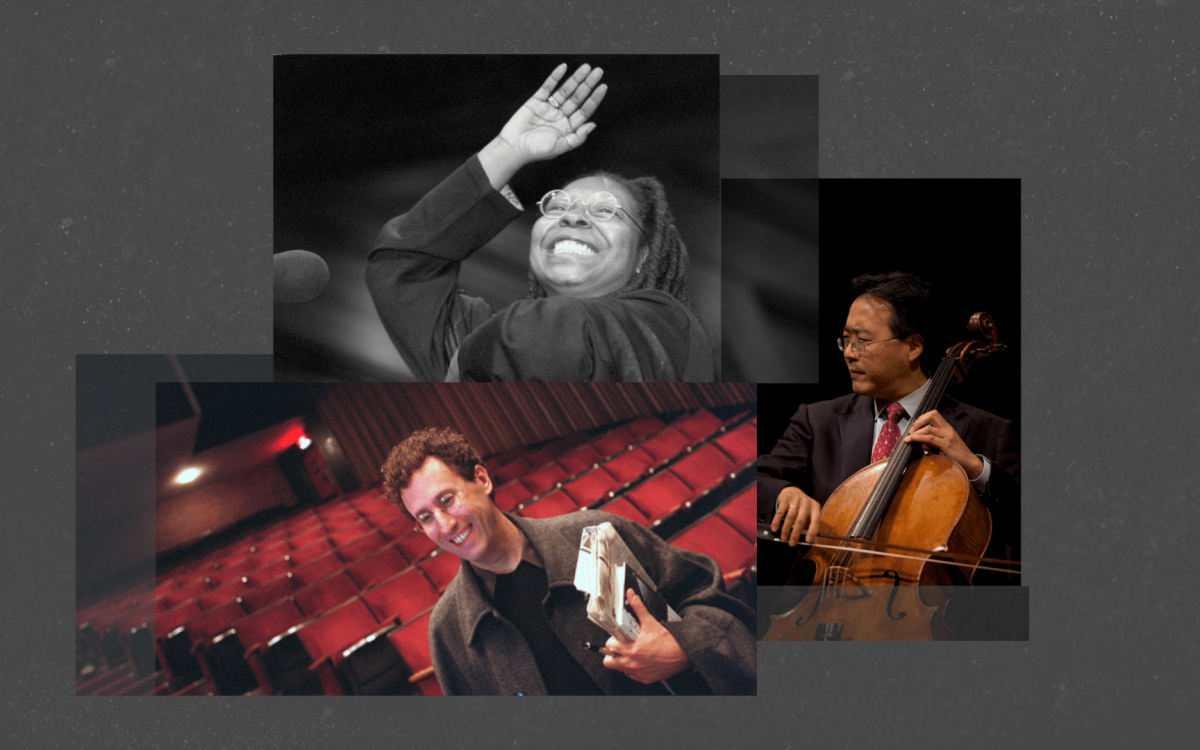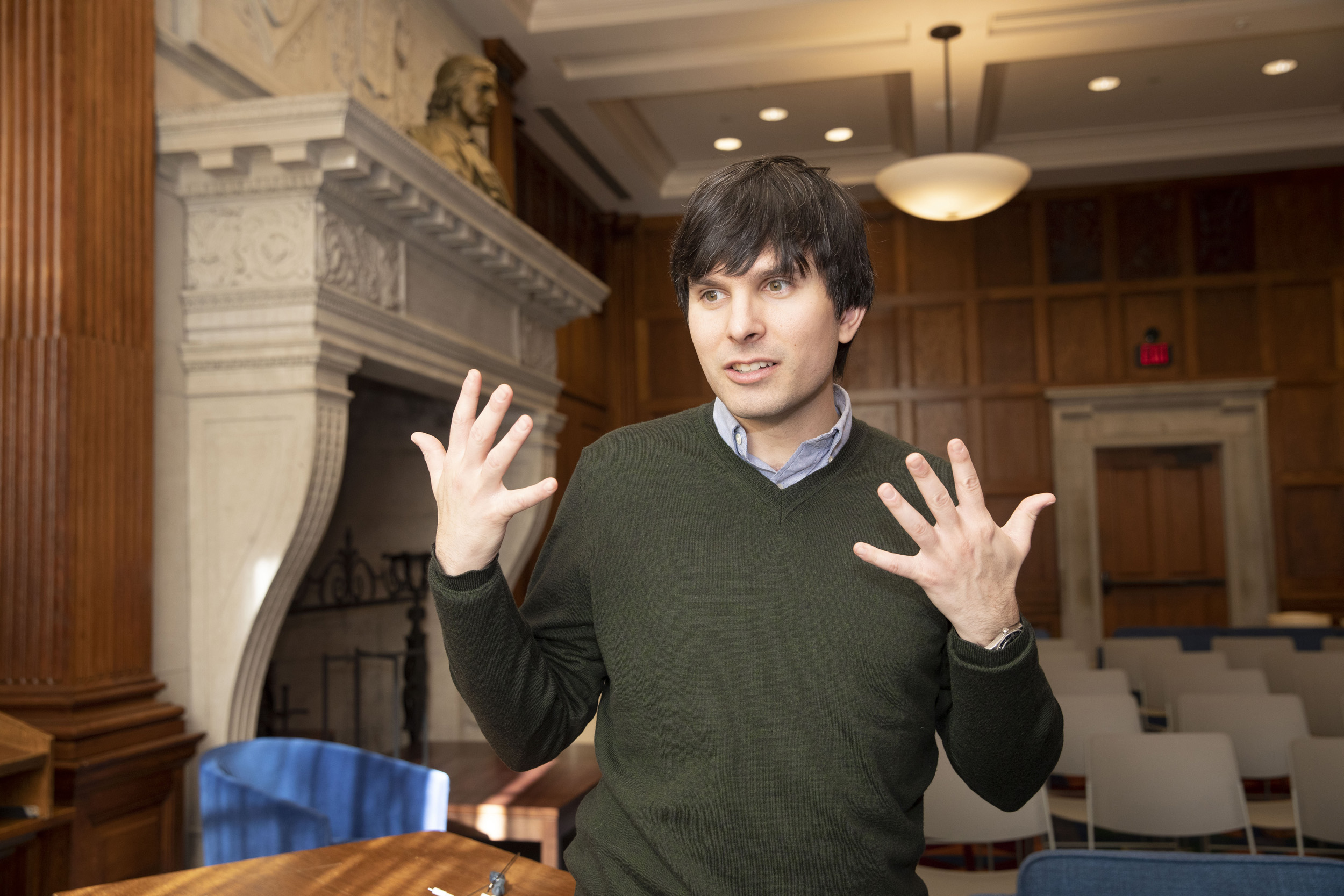
“Different kinds of loving relationships are in part built up out of certain set of norms of what’s permitted, of what’s obligatory,” said Quinn White. “The ethics of it.”
Kris Snibbe/Harvard Staff Photographer
If loving you is wrong – let’s explore the ethics
Lesson from school of hard knocks sets philosopher on course to fill void in literature with serious examination of romantic rules of road
Quinn White came to his interest in the ethics of love and relationships the hard way. The assistant professor of philosophy at Harvard was working on his doctorate at M.I.T. when his own romance headed south.
“I had a terrible breakup,” recalled White. Calling himself “super despondent,” he recalled considering a leave of absence. One of his faculty advisers suggested he simply try to ease back in slowly. “Just read other philosophy and see if doing work without any pressure is helpful. And I started reading about love because that was the only thing I could think about at the time.
“There’s a wonderful quote from Iris Murdoch about philosophy being at once an attempt to say something true and to explore our own temperament, and that’s often something that drives my work: What am I anxious about? What is it that’s really bothering me? And so that sent me down this road.”
Before being derailed by heartache, White had embarked on a paper on the metaphysics of ethics. “How do we get ‘shoulds’ and ‘shouldn’ts’ and goods and bads out of a world that doesn’t obviously have a normativity built into it?” he asked. With his new direction, he found himself reading more widely and tackling such questions with a focus on love: “What exactly justifies treating our loved ones in a way that is ‘more than’ we treat strangers?”
Most of what he found focused on love in specific relationships: family, friends, romance, etc. And the few philosophers in the Western tradition who thought about love as a broader ethical ideal built their thinking on commonly accepted ideals rather than the emotion that we humans experience. “People were taking their cue from the Bible and then doing philosophy on top of that and saying, ‘Look, when God says love everybody or love thy neighbor as thy self, what he really means is promote something like their well-being, promote their happiness.’ And so this tradition develops into what we now think of as utilitarianism consequentialism. It becomes about happiness and well-being, and the love stuff very much drops out of the picture.”
“Part of what it is to love someone is to see them as holding a sort of special place in our practical life.”
Quinn White
As a philosopher who knew something of love, White saw an opening. “I was interested in whether contemporary secular ethics should take seriously an ideal of love and whether there’s something that we can say about that that isn’t just a kind of fancier, biblically rooted word for utilitarianism or consequentialism.”
White drew from Christian and Buddhist traditions, as well as philosophers such as Kant, to focus in on key qualities of our experience of love to uncover the ethics — the rules of the road, so to speak — of our lived realities.
The Yale grad gives an example: “An important attendant fact of loving someone is that we owe them more,” he said. “Part of what it is to love someone is to see them as holding a sort of special place in our practical life.”
So far so good. But that specialness can wreak havoc on our general sense of ethics in various ways. Say, for example, the person you love needs surgery. Most people would do whatever they could to pay for that surgery. “But would it be appropriate for me to go out of my way to spend thousands of dollars knowing that surgery might be really important. It might reduce her pain. But maybe that thousands of dollars could have saved a life had I donated it to some highly effective charity?”
Ultimately, he concluded, the nature of love is that we “do not weigh” the loved one “equally among a world of otherwise equal human beings.”
That does not mean, however, that all relationships must be the same. “Think about the unbelievable variety of romantic love,” said White. “Different kinds of loving relationships are in part built up out of certain set of norms of what’s permitted, of what’s obligatory,” said White. “The ethics of it.”
These ethics are widely informed by our personal histories and cultural expectations — around marriage or dating or even Valentine’s Day, for instance. What is key is understanding that these norms can be individualized — and can evolve as times and circumstance change. Take forgiveness, for example. While much has been written about “forgive and forget,” White points out that forgiveness is really a chance to reshape norms in ways that work for the people involved. A breach of a couple’s accepted ethics — for example, infidelity in a monogamous relationship — has to be acknowledged. The injured party feels pain and is entitled to react. However, there are always choices of how to react, whether it involves “getting kicked out to sleep on the couch” or for the injured party to “waive that entitlement.”
“One way to deal with it is to change our relationships and to withdraw trust, to blame, to be angry. But sometimes we don’t want those things for all kinds of reasons.” In the wake of an apology or understandable extenuating circumstances, all parties may want the relationship to continue. In such a case, trying to forget the pain may not be possible. Seeing the breach as a one-time event may make that easier: “Forgiveness is a power to cordon off the upshot of that and to limit its influence in the present.”
Ultimately, the ability to define our own relationships means understanding — and communicating — the shared ethics, or ground rules. That’s accepted in many of our relationships — for example, a student feels free to ask about expectations from a teacher. But “for romantic relationships that can seem unromantic,” said White.
“There’s a danger that we fall into in the cultural default that’s offered us” in romantic relationships, said White. “We don’t examine the ways in which that should be tweaked or reworked to serve our particular lives — who we want to be.” Without doing the hard work of examining and communicating the shape of the desired relationship “sometimes we get stuck with something that might not be so great,” said White. “Even if there’s nothing intrinsically wrong with it, it’s just not who you want to be with your partner.
“We have enormous power to decide: What does this romantic partnership look like for us,” White said. “It doesn’t have to look like what we see in a movie or what we read in a novel.”
